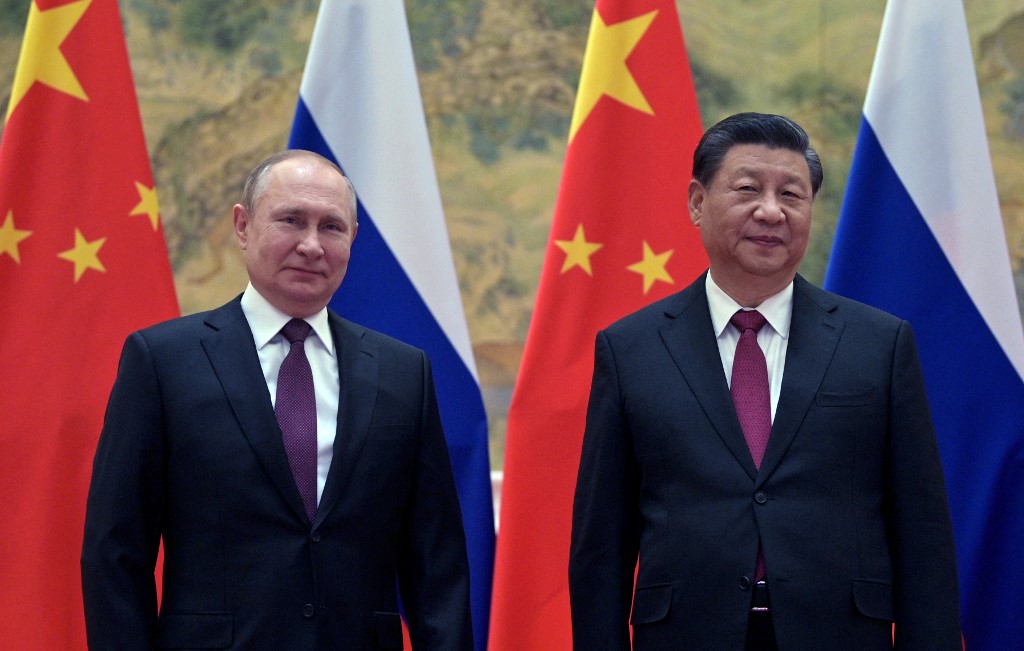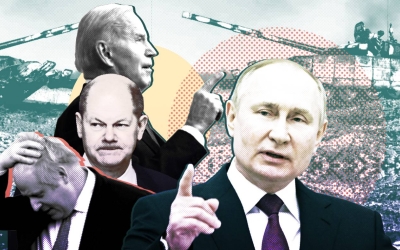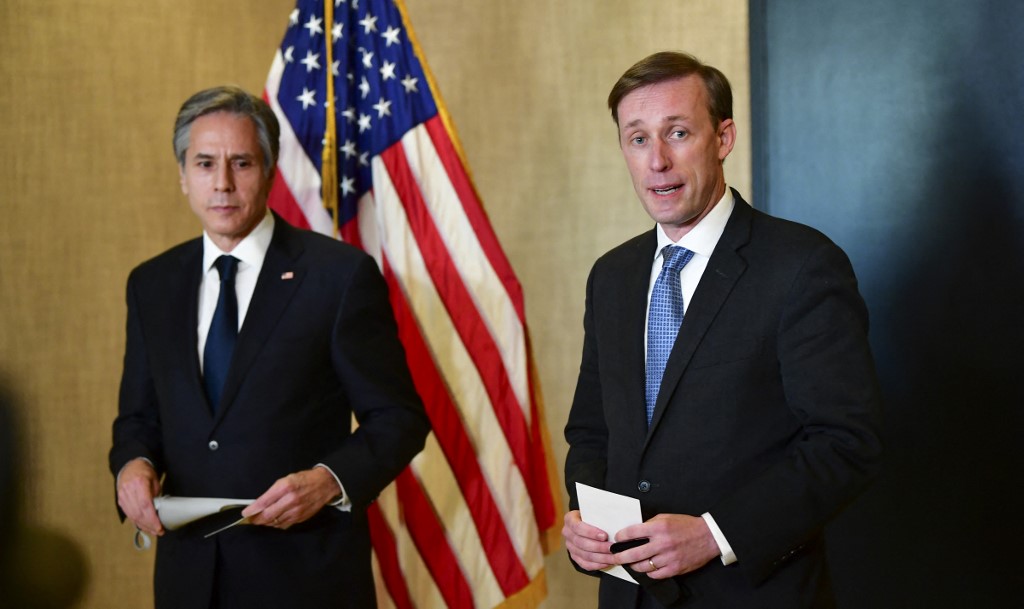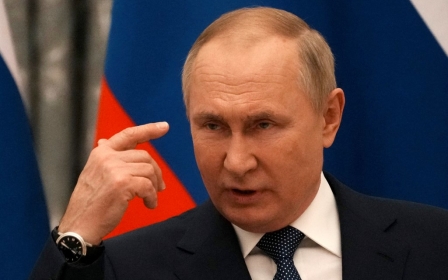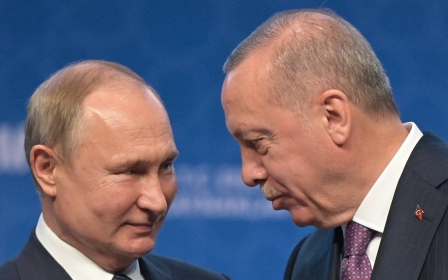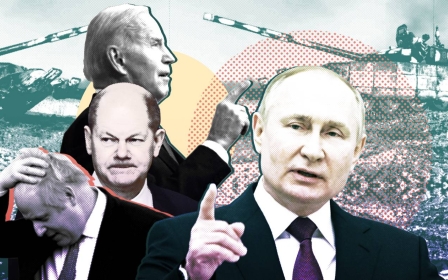Ukraine and Taiwan: Biden has forgotten the lesson of Nixon in China
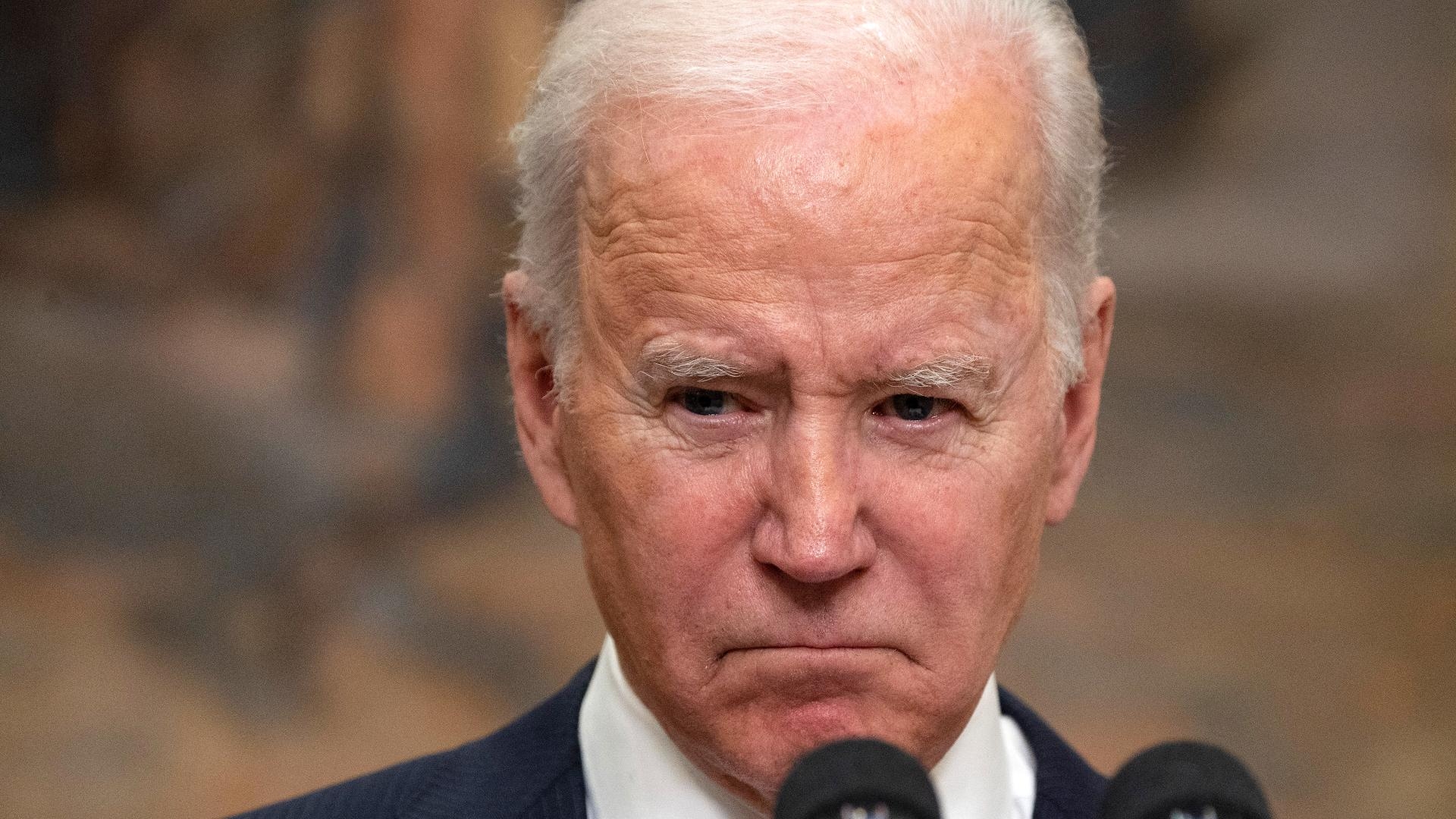
Fifty years ago, on 21 February 1972, Richard Nixon arrived in Beijing. His arrival marked a tectonic shift in US foreign policy. His was the first visit of a US president to communist China. The geopolitical implications of that event were huge.
It was the culmination of a smart diplomatic manoeuvre by Henry Kissinger to facilitate the US's exit from the Vietnam War and to exploit, in the framework of the Cold War, the deep divisions between the Soviet Union and China.
China and Russia are now tightly aligned in contesting the American-led rules-based world order, while the US appears to be a declining power with its credibility tattered
The US overtures towards China laid the foundations for two epochal changes at the turn of the 20th and 21st centuries: the US victory in the Cold War; and China’s rise. The first confirmed the status of the US as the world’s undisputed hegemon; the second is now undermining it.
Fifty years later, the strategic landscape has changed beyond recognition. China and Russia are now tightly aligned in contesting the American-led rules-based world order, while the US appears to be a declining power with its credibility tattered, militarily overstretched - weakened by long and inconclusive wars - highly indebted, deeply polarised domestically and struggling to overcome an internal malaise bordering a constitutional crisis. And last, but not least, still at odds with the severe health and economic consequences of the Covid-19 pandemic.
Decades of globalisation, which at first appeared to be a new world order but turned out to be built upon US-Chinese trade and supply chains, are now contested in America. Washington and Beijing are heading towards a costly and painful decoupling of their trade and supply chains. They are competing over almost everything, particularly where high technology is involved.
They are on opposite sides of the issues of Taiwan, Hong Kong, the South China Sea and cybersecurity. The US and Russia are back to a full-steam Cold War, dangerously confronting each other over Nato’s eastern enlargement and Ukraine’s future, as well as on Europe’s future security architecture. As for the EU, it seems lost, desperately searching for a reason for its existence, and deeply at odds about its response to these tensions.
US hegemony over
The historical diplomatic breakthrough opened up by Nixon’s visit has now been symbolically closed - and was actually reversed in Beijing on 4 February 2022, when Chinese and Russian leaders Xi Jinping and Vladimir Putin issued an unprecedented 6,000-word joint statement which challenged all the premises upon which the current US-led rules-based world order was founded.
The statement offered a radically alternative vision for a world order that is multipolar and freed from American leadership.
Here are a few excerpts from the statement, duly decoded: "The world is going through momentous changes… the transformation of the global governance architecture and world order… a trend has emerged towards redistribution of power in the world." Translation: US-western global hegemony is over.
"Democracy is a universal human value, rather than a privilege of a limited number of states, and that its promotion and protection is a common responsibility of the entire world community.” Translation: US and western nations cannot decide alone what democracy is and cannot promote it according to their own exclusive views.
“Democracy is a means of citizens' participation in the government of their country with the view to improving the wellbeing of their population.” Translation: Democracy is much more than an electoral process and the protection of human rights.
"There is no one-size-fits-all template to guide countries in establishing democracy.” Translation: The western neoliberal model is not and cannot pretend to be universal.
Essentially, no major international issues are left untouched by the document. China and Russia support each other on the two major crises now: Ukraine and Taiwan. They oppose US-western attempts to support colour revolutions, regime change and the encirclement of them with a system of alliances.
They are confident that the major drivers of progress will be in Eurasia, irrespective of what the US believes or does.
Strategic miscalculation
If, when and how Russia and China move from words to deeds in implementing their vision, we could be witnessing the defining moments of 21st-century geopolitics. There is a heated debate in the West about who should be blamed for such a dramatic turn of events.
While it would be unfair to lay the blame for this mess on Biden alone, it would also be preposterous to paint the West as the victim of Russian and Chinese autocrats
After Donald Trump’s tumultuous period and his amateurish and largely ineffective policies, in January last year a new US administration was sworn in, boasting professional credentials: the veteran politician Joe Biden as president, assisted by foreign-policy wonks such as Antony Blinken and Jake Sullivan. The ghosts of Mike Pompeo and John Bolton were banished.
Biden claimed that America was back, but his professional management so far has been disappointing: Europe appears on the brink of war over Ukraine, and tensions over Taiwan and the South China Sea are reaching new heights, while the withdrawal from Afghanistan was disastrously accomplished without coordination with major allies.
While it would be unfair to lay the blame for this mess on Biden alone, it would also be preposterous to paint the West as the victim of Russian and Chinese autocrats.
Ukraine shows, if Georgia before it did not, that Nato’s eastern enlargement was a major strategic miscalculation. Like it or not, Russia (and China) believe that they have the right to their own security red lines. If it implies the recognition of specific spheres of influence, it should not be considered so outrageous if it is for the sake of peace and stability.
After all, and irrespective of what Blinken might have clumsily declared recently, the US continues to maintain its own global spheres of influence, which encompass the entire American continent, Europe, the Middle East and the Indo-Pacific region.
In contrast, Russia and China are pointing to areas in their immediate neighbourhoods and crucial for their supply lines. The Taiwan issue goes back to 1949, Ukraine at least to 1999, when Nato carried out its first enlargement. None of these issues has risen out of the blue.
Amateurish approach
On Ukraine, and many other issues, Putin has been giving out strong warnings since 2007, and authoritative US officials have been doing the same.
The allegedly professional Team Biden has ignored the masterful realpolitik lesson Team Nixon gave half a century ago
In February 2008, US veteran diplomat and ambassador to Moscow Bill Burns sent a classified memo to Secretary of State Condoleeza Rice, later shared with Secretary of Defence Robert Gates and National Security Adviser Stephen Hadley.
He presciently wrote: “Ukrainian entry into Nato is the brightest of all red lines for the Russian elite (not just Putin). In more than two-and-a-half years of conversations with key Russian players… I have yet to find anyone who views Ukraine in Nato as anything other than a direct challenge to Russian interests… It will create fertile soil for Russian meddling in Crimea and eastern Ukraine."
Ironically, Bill Burns is today director of the CIA, appointed by Biden. The US president is certainly not required to listen to the Russian president, but he would do well to listen to his own head of intelligence who, incidentally, knows Russia very well.
The allegedly professional Team Biden has ignored the masterful realpolitik lesson Team Nixon gave half a century ago; instead of playing China and Russia against each other, it has recklessly and hubristically preferred to antagonise both, accelerating their dangerous alignment. It has decided to pursue such a policy when America has never been so weak, suggesting a more amateurish than professional approach.
An internal crisis
The US government has now been frantically mobilising its allies and compliant media for weeks. It has been tightening the ranks of its European allies against Russia on Ukraine, hyping the tension to levels that are embarrassing even for Kyiv’s authorities.
It is difficult to discern any rational motivation for such unnecessary and dangerous hype. One explanation is that, as often occurs, the Americans dangerously end up believing their own propaganda, as in Iraq in 2003.
An alternative and fascinating explanation was provided earlier this month by another veteran US diplomat, Jack Matlock, the last ambassador to the Soviet Union who years earlier was at the US embassy in Moscow during the Cuban missile crisis. He wrote: “I cannot dismiss the suspicion that we are witnessing an elaborate charade, grossly magnified by prominent elements of the American media, to serve a domestic political end. Facing rising inflation, the ravages of Covid-19, blame (for the most part unfair) for the withdrawal from Afghanistan, plus the failure to get the full support of his own party for the Build Back Better legislation, Biden’s administration is staggering under sagging approval ratings just as it gears up for this year’s congressional elections. Since clear 'victories' on the domestic woes seem increasingly unlikely, why not fabricate one by posing as if he prevented the invasion of Ukraine by 'standing up to Vladimir Putin'?”
It might be a sheer coincidence, but both the CBS channel and the New York Times quoted US intelligence sources claiming that that the Kremlin had given the order for Russian military units to proceed with an invasion of Ukraine. According to these sources, the move prompted President Biden to announce that the Russian president had decided to attack.
After all, every foreign policy crisis reflects an internal one.
The views expressed in this article belong to the author and do not necessarily reflect the editorial policy of Middle East Eye.
Middle East Eye propose une couverture et une analyse indépendantes et incomparables du Moyen-Orient, de l’Afrique du Nord et d’autres régions du monde. Pour en savoir plus sur la reprise de ce contenu et les frais qui s’appliquent, veuillez remplir ce formulaire [en anglais]. Pour en savoir plus sur MEE, cliquez ici [en anglais].



